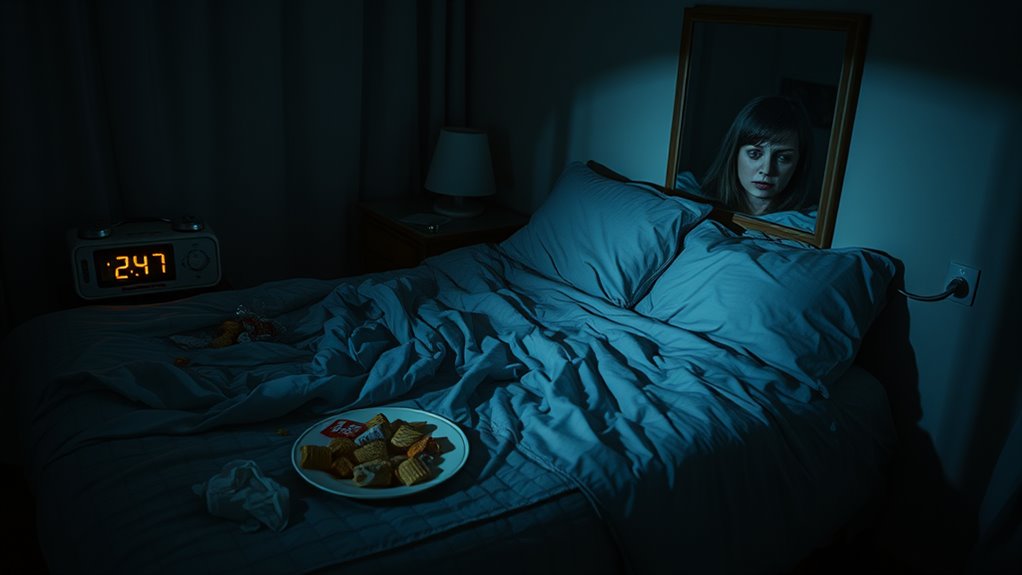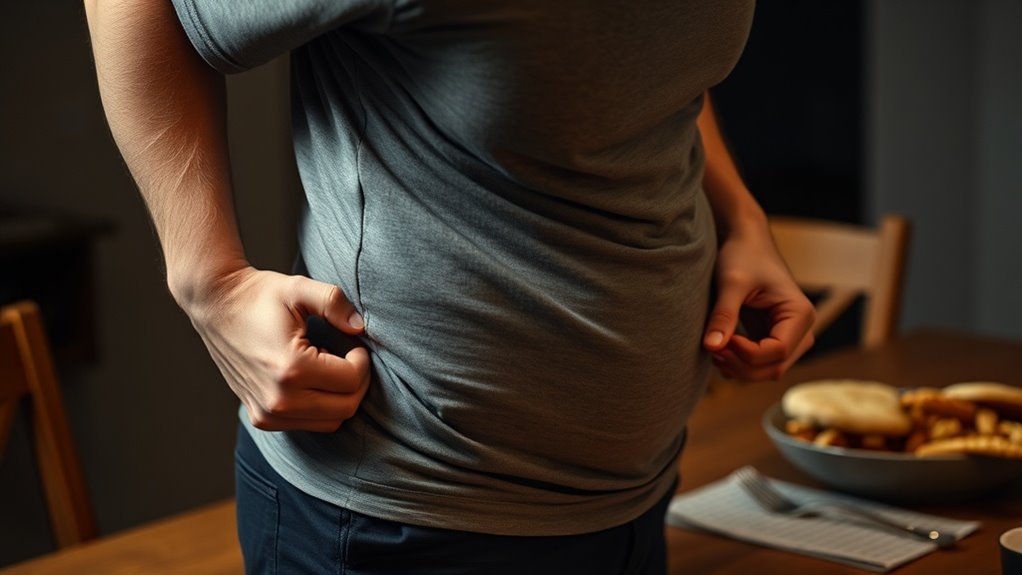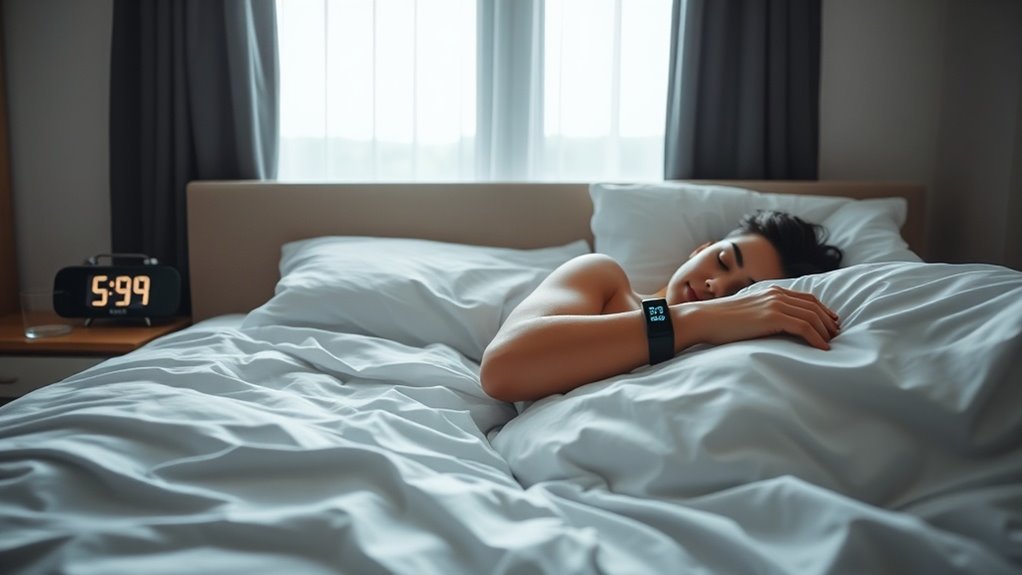Why Sleeping Less Than 6 Hours Could Be Making You Fat!
Ever wonder why those late-night snacks seem to call your name even when you’re trying to eat healthy? It might just be that you’re not getting enough sleep. When you clock in less than six hours, your body’s hunger hormones go haywire, making you crave the very foods you’re trying to avoid. But that’s just the tip of the iceberg. Let’s explore how sleep affects your weight and what you can do about it.
The Link Between Sleep and Weight Gain
When you’re trying to shed a few pounds, it might surprise you to learn that your sleep habits could be just as important as what you eat.
A lack of sleep can seriously sabotage your weight loss efforts. When you don’t get enough shut-eye, your body’s hormones go haywire, making you crave unhealthy foods. You might find yourself reaching for that bag of chips instead of a salad, all because you’re tired.
Plus, when you’re sleep-deprived, your energy levels drop, and you’re less likely to hit the gym or go for a run.
Hormonal Changes Due to Sleep Deprivation
Sleep deprivation doesn’t just leave you groggy; it can also throw your hormones into a tailspin. When you skimp on sleep, your body reacts in ways you mightn’t even realize.
You might notice:
- Increased cortisol levels, which can lead to stress and weight gain.
- Disruption in insulin sensitivity, making it harder to manage blood sugar levels.
- Changes in appetite-regulating hormones, throwing your cravings out of whack.
These hormonal changes can create a cycle that’s tough to break. You find yourself reaching for sugary snacks for a quick energy boost, only to feel worse later.
Prioritizing sleep isn’t just about feeling rested; it’s a crucial step toward maintaining a healthier weight and a happier you. So, consider making sleep a priority!
Increased Appetite: The Role of Ghrelin and Leptin
You mightn’t realize it, but your body has a clever way of signaling when it’s hungry or full, and two key players in this process are hormones called ghrelin and leptin.
Ghrelin, often dubbed the “hunger hormone,” spikes when you’re sleep-deprived, making you crave those late-night snacks. On the flip side, leptin tells your brain when you’ve had enough food.
When you don’t get enough sleep, your leptin levels drop, leaving you feeling hungrier than a bear in a picnic basket!
So, if you find yourself reaching for that extra slice of pizza, it’s not just your willpower at play—your hormones are in cahoots.
Prioritizing sleep might help balance these hormones and curb those cravings, making your weight loss journey a bit easier.
Metabolism Disruption From Lack of Sleep
Even if you’re trying your best to stick to a healthy diet and exercise routine, lack of sleep can throw a wrench in your metabolism.
When you skimp on sleep, your body doesn’t burn calories as efficiently, and that can lead to unwanted weight gain.
Here’s how your metabolism gets disrupted:
- Your body produces less insulin, which can lead to fat storage.
- You’re more likely to crave high-calorie foods, making it harder to resist unhealthy snacks.
- Hormonal imbalances can slow down your metabolic rate, making it tougher to shed those extra pounds.
Sleep Recommendations for Weight Management
When you’re juggling work, school, and social life, it’s easy to overlook the importance of getting enough shut-eye, but prioritizing sleep can be a game changer for managing your weight.
Aim for 7 to 9 hours of quality sleep each night. This isn’t just a recommendation; it’s essential for keeping those hunger hormones in check.
You might find it tough to hit those numbers, especially when Netflix is calling, but think about how much better you’ll feel and look with a little extra rest.
Remember, consistency is key. Try to go to bed and wake up at the same time every day, even on weekends.
Your body will thank you, and those extra pounds might just start to melt away!
Tips for Improving Sleep Quality
While it might feel like a challenge to unwind after a long day, improving your sleep quality can make a huge difference in how you feel and even help with weight management.
Think about it: better sleep means more energy and a healthier you! Here are a few tips to help you snooze better:
- Create a relaxing bedtime routine, like reading a book or listening to calming music.
- Keep your bedroom dark, cool, and quiet to help signal your body that it’s time to sleep.
- Limit screen time before bed, as the blue light can trick your brain into thinking it’s still daytime.





